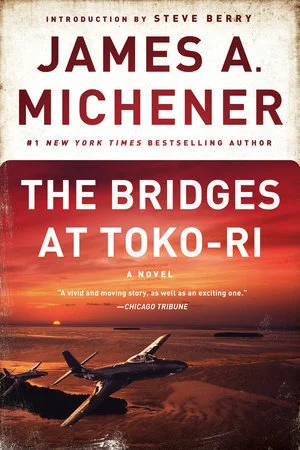KOREAN WAR
In the dry and clinical description of the annalist, the Korean War may be defined as a war between North Korea allied with China and the Soviet Union and South Korea allied with the United Nations and the United States of America. The war began on 25 June 1950 when North Korea invaded South Korea. As always, wars have complex backgrounds. Reasons and factors and inevitabilities are dominoes that later historians set up in the worthy cause of warning the present time and future times not to go down that path.
I will keep this personal and small-scale. My father was a veteran of the Korean War. He was there 1953-1954 with the 7th Infantry Division and was awarded a Bronze Star for meritorious service. He was 23-24 years old there, fresh out of Michigan State University’s ROTC program. We always traded military history back and forth. Late in life he began to tell me stories of his time there — and of his experiences in the Dominican Republic and in Vietnam. As a bookseller I provided him with books on “his” war, which he appreciated for the larger canvas they provided. Here are some of the good ones I have found over the years. I know I don’t have enough of the Korean perspective of the war, and I don’t have many big strategic maps that situate the war within the Cold War. But this listing is a beginning. History is always beginning over. As a discipline, as a way of thought, history never tires of trying to get the story not only right but understandable.
The Bridges of Toko-Ri
The Bridges of Toko-Ri
The classic novel from Michener, in trade paperback for the first time, featuring a new introduction by Steve Berry.
In one of his beloved early bestsellers, Pulitzer Prize–winning author James A. Michener crafts a tale of the American men who fought the Korean War, detailing their exploits in the air as well as their lives on the ground. Young and innocent, they arrive in a place they have barely ever heard of, on a ship massive enough to carry planes and helicopters. Trained as professionals, they prepare for the rituals of war that countless men before them have endured, and face the same fears. They are American fighter pilots. Together they face an enemy they do not understand, knowing their only hope for survival is to win.
Praise for The Bridges at Toko-Ri
“A vivid and moving story, as well as an exciting one . . . The humanity of the people is deeply felt.”—Chicago Tribune
“The Banshees screaming over Korea, the perilous landings on an aircraft carrier deck ‘bouncing around like a derelict rowboat,’ a helicopter rescue from the freezing waters . . . all are stirringly rendered.”—The Denver Post

